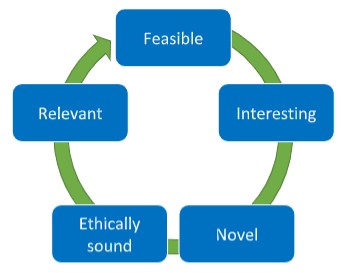The process of developing a research question for an Ed.D. dissertation begins with identifying a significant problem of practice within your educational context. Unlike Ph.D. research that often focuses on theoretical contributions, Ed.D. dissertations emphasize practical applications and solutions to real-world educational challenges. Start by examining your current work environment, professional experiences, and the persistent issues that impact student learning, organizational effectiveness, or educational equity. Consider what problems keep you awake at night as an educator or administrator, and which challenges you feel passionate about addressing through systematic inquiry.
Once you’ve identified a general area of concern, the next step involves conducting a preliminary literature review to understand the existing research landscape and identify gaps where your study could contribute meaningful insights. This exploratory phase helps you narrow your focus from a broad problem area to a more specific research question. Effective Ed.D. research questions typically address “how” or “why” rather than simply “what,” as they seek to understand processes, relationships, or the effectiveness of interventions. Your question should be specific enough to be manageable within the scope of a doctoral study, yet significant enough to contribute valuable knowledge to the field of educational practice.
The refinement process requires careful attention to feasibility and methodology alignment. Consider whether you have access to the necessary participants, data sources, and institutional support to conduct your proposed study. Your research question should suggest an appropriate methodological approach, whether quantitative or qualitative. (Mixed methods are never recommended for dissertation work.) Strong Ed.D. research questions may incorporate elements of program evaluation, reflecting the practitioner-scholar model that characterizes doctoral education programs. Additionally, ensure your question addresses issues of equity, accessibility, or improvement that align with contemporary educational priorities and your institution’s mission.
Throughout the drafting process, seek feedback from faculty mentors, colleagues, and potential dissertation committee members. Your research question will likely evolve multiple times as you deepen your understanding of the literature, clarify your methodology, and refine your focus. The final research question should be clear, concise, and compelling, something that excites you enough to sustain years of intensive study while addressing a genuine need in educational practice. Consider the FINER model for evaluating your draft questions.

Remember that your research question will serve as the foundation for your entire dissertation, guiding your literature review, methodology, data collection, and analysis, so investing time in getting it right is crucial for your success. It will often serve as the foundational work for your continued academic research agenda.
Additional Resources for Further Information (recommended by Claude.ai)
- Harvard Graduate School of Education: “Developing Research Questions” – https://www.gse.harvard.edu/academics/doctoral-programs/resources/developing-research-questions
- Carnegie Project on the Education Doctorate (CPED): Framework and principles for practitioner-oriented doctoral education – https://www.cpedinitiative.org/
- University of Southern California Rossier School: “Ed.D. Dissertation Guidelines” – https://rossier.usc.edu/academics/doctoral-programs/doctor-of-education/dissertation-guidelines/
- Sage Research Methods: Online resource for research design and methodology – https://methods.sagepub.com/
- National Association of Secondary School Principals: Research resources for educational leaders – https://www.nassp.org/research-center/
